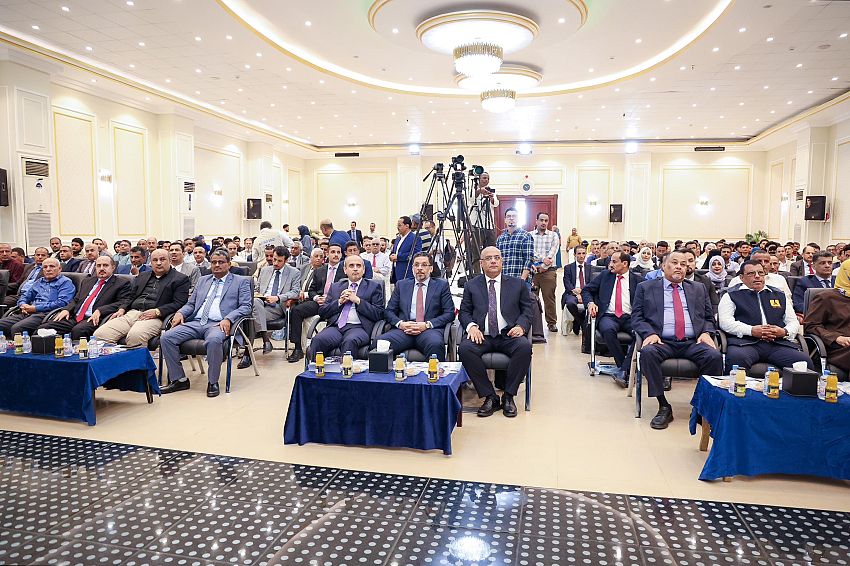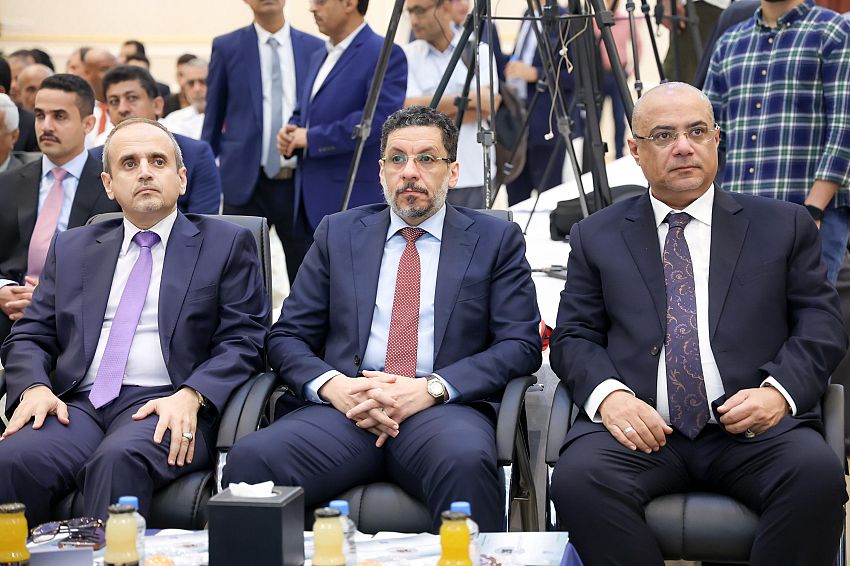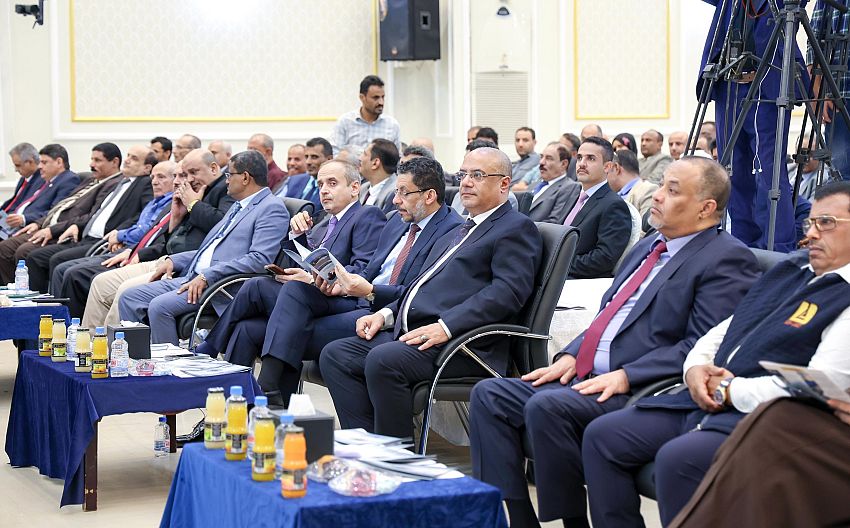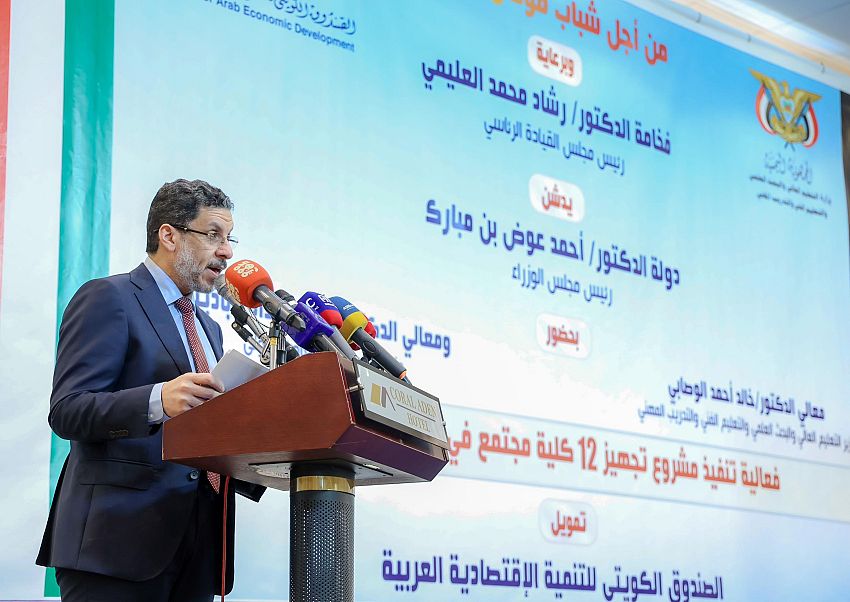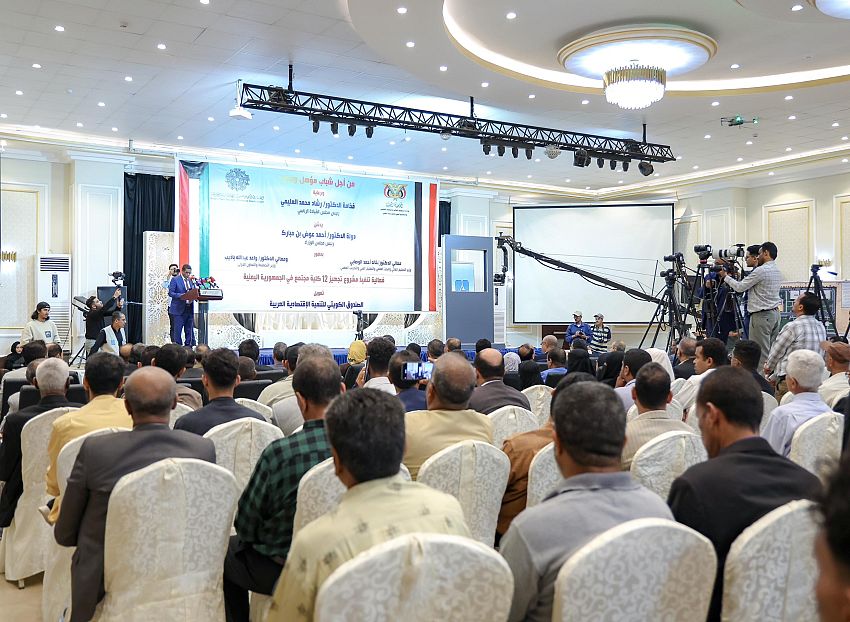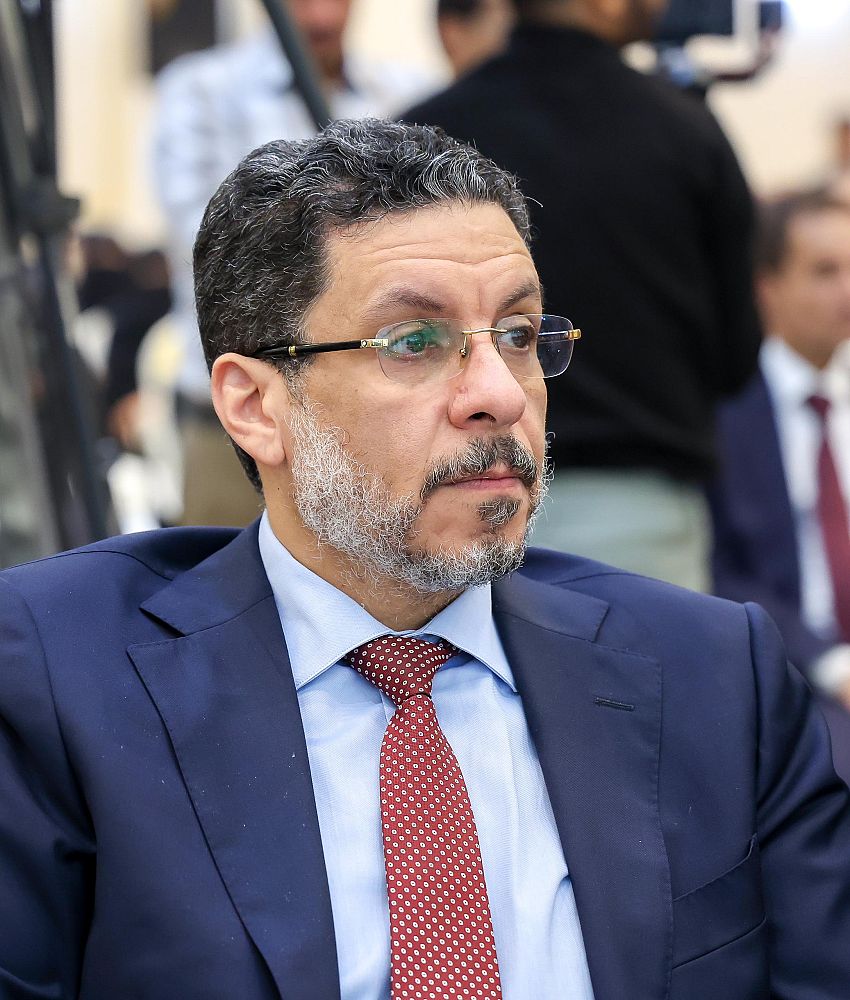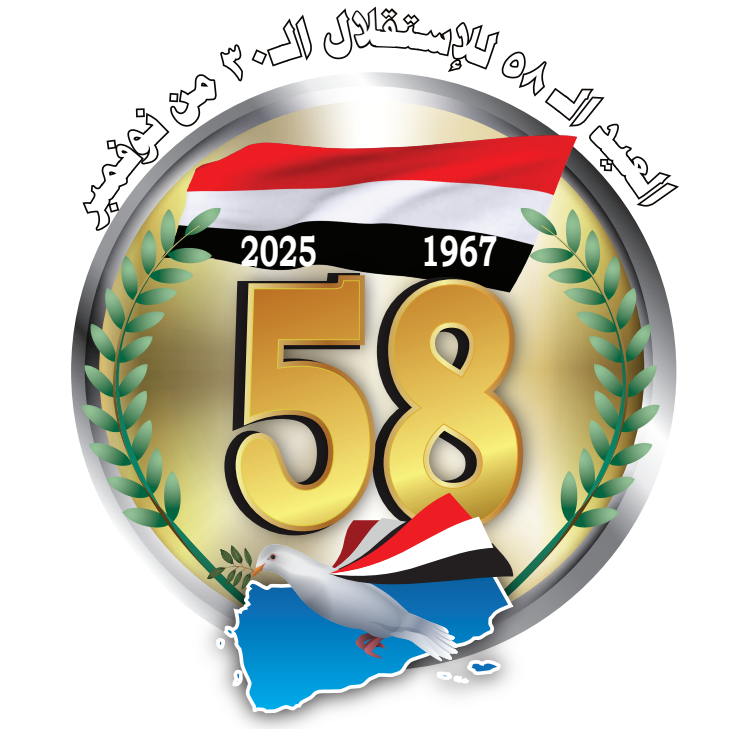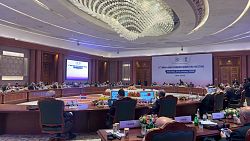
" New Delhi Declaration" reiterates commitment to Yemen's unity, territorial integrity
The second meeting of the Ministers of Foreign Affairs of the Republic of India and the Arab countries restated its firm commitment to the unity of the Republic of Yemen, its sovereignty, independence and the integrity of its territory, affirming its outright rejection of any interference in its internal affairs, condemning all actions aimed at undermining Yemen's security or affecting its territorial unity.

Israeli Aggression Leaves 71,769 Gazans Martyred, 171,483 Injured
The death toll from Israel's aggression on Gaza since October 7, 2023, has risen to 71,769 martyrs and 171,483 injured, medical sources reported.

S. Korea's exports rise 33.9 percent in January
South Korea's exports jumped 33.9 percent year-on-year to reach $65.85 billion in January, driven by strong demand for semiconductors.

Paris Saint-Germain temporarily tops the French league after their win against Auxerre
Paris Saint-Germain defeated Auxerre 1-0 in their Ligue 1 match on Matchday 19.
Last Update: ،
2026/02/02
Time
03:58:38
Latest News:
 Yemeni Government blames Houthi militias for disrupting air navigation, seriously escalating
Yemeni Government blames Houthi militias for disrupting air navigation, seriously escalating
 Member of PLC Tareq Saleh reviews arrangements for launching of commercial flights via Mocha Airport ..
Member of PLC Tareq Saleh reviews arrangements for launching of commercial flights via Mocha Airport ..
 Ministry of Youth and Sports Discusses Saudi Program Preparations to Rehabilitate May 22 Stadium in Aden
Ministry of Youth and Sports Discusses Saudi Program Preparations to Rehabilitate May 22 Stadium in Aden
 Taiz Governor Launches First Yemenia Airways Flight from Mocha International Airport
Taiz Governor Launches First Yemenia Airways Flight from Mocha International Airport
 Aden Governor, UNHCR Discuss Key Infrastructure Projects
Aden Governor, UNHCR Discuss Key Infrastructure Projects
Latest News:
 Yemeni Government blames Houthi militias for disrupting air navigation, seriously escalating
Yemeni Government blames Houthi militias for disrupting air navigation, seriously escalating
 Member of PLC Tareq Saleh reviews arrangements for launching of commercial flights via Mocha Airport ..
Member of PLC Tareq Saleh reviews arrangements for launching of commercial flights via Mocha Airport ..
 Ministry of Youth and Sports Discusses Saudi Program Preparations to Rehabilitate May 22 Stadium in Aden
Ministry of Youth and Sports Discusses Saudi Program Preparations to Rehabilitate May 22 Stadium in Aden
 Taiz Governor Launches First Yemenia Airways Flight from Mocha International Airport
Taiz Governor Launches First Yemenia Airways Flight from Mocha International Airport
 Aden Governor, UNHCR Discuss Key Infrastructure Projects
Aden Governor, UNHCR Discuss Key Infrastructure Projects
Prime Minister launches project to equip 12 community colleges funded by Kuwait
[11/11/2024 06:37]
ADEN - SABA
Prime Minister Dr. Ahmed Awadh bin Mubarak launched on Monday a project to equip 12 community colleges in the Republic of Yemen financed by the Kuwaiti Fund for Arab Economic Development, with a total cost exceeding USD 57 million.
The project, which the government has recently worked on to resolve issues that hindered its implementation since the loan agreement was signed in February 2012, includes equipping community colleges in Aden, Taiz, Marib, Dhale'e, Shar'ab, al-Hajar, Seiyun, Socotra, Amran, Abs, al-Shaher, and Shabwa.
During the inauguration event, held under the slogan "For Qualified and Productive Youth," the Prime Minister delivered a speech outlining the government's efforts to resolve the obstacles facing this project.
These efforts are part of the government's ongoing work to mobilize stalled loans and aid from development funds for high-value developmental projects and investment programs. He emphasized that enhancing the use of available funding to support the Yemeni people is among his top five priorities since taking office, he said.
Dr. Ahmed Awadh bin Mubarak identified the reasons for the stagnation of several projects, be they technical, administrative, financial, or security-related, and outlined a vision to address these challenges, particularly as they pertain to vital issues such as roads, bridges, and sewage systems.
He noted that there are 76 stalled projects valued at over USD 5 billion, including 24 projects due to technical and administrative reasons, with 41 of these projects located in liberated governorates.
He highlighted that Yemen's ability to absorb commitments in 2006 was just 37%, a low percentage that needs to be responsibly addressed despite current exceptional challenges.
The Prime Minister stressed the necessity of responsibly tackling the issue of project implementation delays and rising to the level of challenges and aspirations. He pointed out that this project represents a glimmer of hope and a model that can be built upon to address stalled projects, asserting that when state institutions operate in a coordinated and integrated manner, they can achieve significant accomplishments.
He indicated that this project would involve equipping laboratories in colleges for more than 26 medical, engineering, and technical specialties, marking a scientific and technical revolution unprecedented in the Republic's history in terms of the geographical area covered and the number of specialties and types of programs financed.
He explained that the establishment of technical community colleges in the early 1990s aims to align higher education outputs with development requirements and labor market needs.
Dr. Ahmed Awadh bin Mubarak affirmed the government's belief that technical community colleges play a crucial role in economic and social life, as they are one of the main tools for building human capacity and a key mechanism for combating poverty and achieving sustainable development.
"This type of education generates many job opportunities across various economic sectors, and thus it must be characterized by flexibility and rapid development in line with economic and social developments and the nature of quick technological transformations and the information revolution," he said.
He noted that providing adequate funding for such educational projects will enhance job opportunities for youth and help eradicate poverty and unemployment, thereby integrating young people into development rather than pushing them towards cycles of violence and extremism.
"No matter how much money is spent on education, it is always a profitable investment, and it is undoubtedly much less than what we might spend in addressing the social, political, and security problems arising from attracting youth to extremist ideas and armed violent groups," he said.
The Prime Minister called on deans of community colleges to focus on improving technical education outcomes and developing academic programs.
He directed the Higher Council of Community Colleges to monitor the educational process in the colleges, particularly all programs in medical specialties, and to regulate the expansion of establishing public or private community colleges only after the necessary requirements, especially laboratories and academic staff, are met.
He praised roles of brothers in the State of Kuwait and their brotherly positions towards Yemeni people during the past decades in financing developmental projects, expressing hope that the Community College of Sheikh Salem Al- Sabah to be launched in Socotra soon in the future.
Prime Minister Dr. Ahmed Awadh bin Mubarak launched on Monday a project to equip 12 community colleges in the Republic of Yemen financed by the Kuwaiti Fund for Arab Economic Development, with a total cost exceeding USD 57 million.
The project, which the government has recently worked on to resolve issues that hindered its implementation since the loan agreement was signed in February 2012, includes equipping community colleges in Aden, Taiz, Marib, Dhale'e, Shar'ab, al-Hajar, Seiyun, Socotra, Amran, Abs, al-Shaher, and Shabwa.
During the inauguration event, held under the slogan "For Qualified and Productive Youth," the Prime Minister delivered a speech outlining the government's efforts to resolve the obstacles facing this project.
These efforts are part of the government's ongoing work to mobilize stalled loans and aid from development funds for high-value developmental projects and investment programs. He emphasized that enhancing the use of available funding to support the Yemeni people is among his top five priorities since taking office, he said.
Dr. Ahmed Awadh bin Mubarak identified the reasons for the stagnation of several projects, be they technical, administrative, financial, or security-related, and outlined a vision to address these challenges, particularly as they pertain to vital issues such as roads, bridges, and sewage systems.
He noted that there are 76 stalled projects valued at over USD 5 billion, including 24 projects due to technical and administrative reasons, with 41 of these projects located in liberated governorates.
He highlighted that Yemen's ability to absorb commitments in 2006 was just 37%, a low percentage that needs to be responsibly addressed despite current exceptional challenges.
The Prime Minister stressed the necessity of responsibly tackling the issue of project implementation delays and rising to the level of challenges and aspirations. He pointed out that this project represents a glimmer of hope and a model that can be built upon to address stalled projects, asserting that when state institutions operate in a coordinated and integrated manner, they can achieve significant accomplishments.
He indicated that this project would involve equipping laboratories in colleges for more than 26 medical, engineering, and technical specialties, marking a scientific and technical revolution unprecedented in the Republic's history in terms of the geographical area covered and the number of specialties and types of programs financed.
He explained that the establishment of technical community colleges in the early 1990s aims to align higher education outputs with development requirements and labor market needs.
Dr. Ahmed Awadh bin Mubarak affirmed the government's belief that technical community colleges play a crucial role in economic and social life, as they are one of the main tools for building human capacity and a key mechanism for combating poverty and achieving sustainable development.
"This type of education generates many job opportunities across various economic sectors, and thus it must be characterized by flexibility and rapid development in line with economic and social developments and the nature of quick technological transformations and the information revolution," he said.
He noted that providing adequate funding for such educational projects will enhance job opportunities for youth and help eradicate poverty and unemployment, thereby integrating young people into development rather than pushing them towards cycles of violence and extremism.
"No matter how much money is spent on education, it is always a profitable investment, and it is undoubtedly much less than what we might spend in addressing the social, political, and security problems arising from attracting youth to extremist ideas and armed violent groups," he said.
The Prime Minister called on deans of community colleges to focus on improving technical education outcomes and developing academic programs.
He directed the Higher Council of Community Colleges to monitor the educational process in the colleges, particularly all programs in medical specialties, and to regulate the expansion of establishing public or private community colleges only after the necessary requirements, especially laboratories and academic staff, are met.
He praised roles of brothers in the State of Kuwait and their brotherly positions towards Yemeni people during the past decades in financing developmental projects, expressing hope that the Community College of Sheikh Salem Al- Sabah to be launched in Socotra soon in the future.
Key words:
transformations - accomplishments - implementation - administrative - technological - developmental - establishment - opportunities - characterized - unprecedented - " New Delhi Declaration" reiterates commitment to Yemen's unity, territorial integrity
" New Delhi Declaration" reiterates commitment to Yemen's unity, territorial integrity  Yemeni Government blames Houthi militias for disrupting air navigation, seriously escalating
Yemeni Government blames Houthi militias for disrupting air navigation, seriously escalating  Taiz Governor Launches First Yemenia Airways Flight from Mocha International Airport
Taiz Governor Launches First Yemenia Airways Flight from Mocha International Airport Army Foils Houthi Infiltration Attempt East of Taiz
Army Foils Houthi Infiltration Attempt East of Taiz Leadership Council Member Al-Mahrami, Officials Discuss Situation of Judicial Authority, Promoting Its Institutional Role
Leadership Council Member Al-Mahrami, Officials Discuss Situation of Judicial Authority, Promoting Its Institutional Role  Al-Mahrami Meets Hadramaut Governor's Deputy, Stresses Southern Unity and Dialogue
Al-Mahrami Meets Hadramaut Governor's Deputy, Stresses Southern Unity and Dialogue Yemen Government Condemns Houthi Attack on UN Offices, Humanitarian Work
Yemen Government Condemns Houthi Attack on UN Offices, Humanitarian Work  Ambassador Mohamed Taha, EU Officials Confer on Boosting Ties and Yemen Developments
Ambassador Mohamed Taha, EU Officials Confer on Boosting Ties and Yemen Developments  Yemen Participates in 2026 Global Peace Summit in France
Yemen Participates in 2026 Global Peace Summit in France Yemen, India Discuss Joint Commission Meeting to Boost Ties
Yemen, India Discuss Joint Commission Meeting to Boost Ties